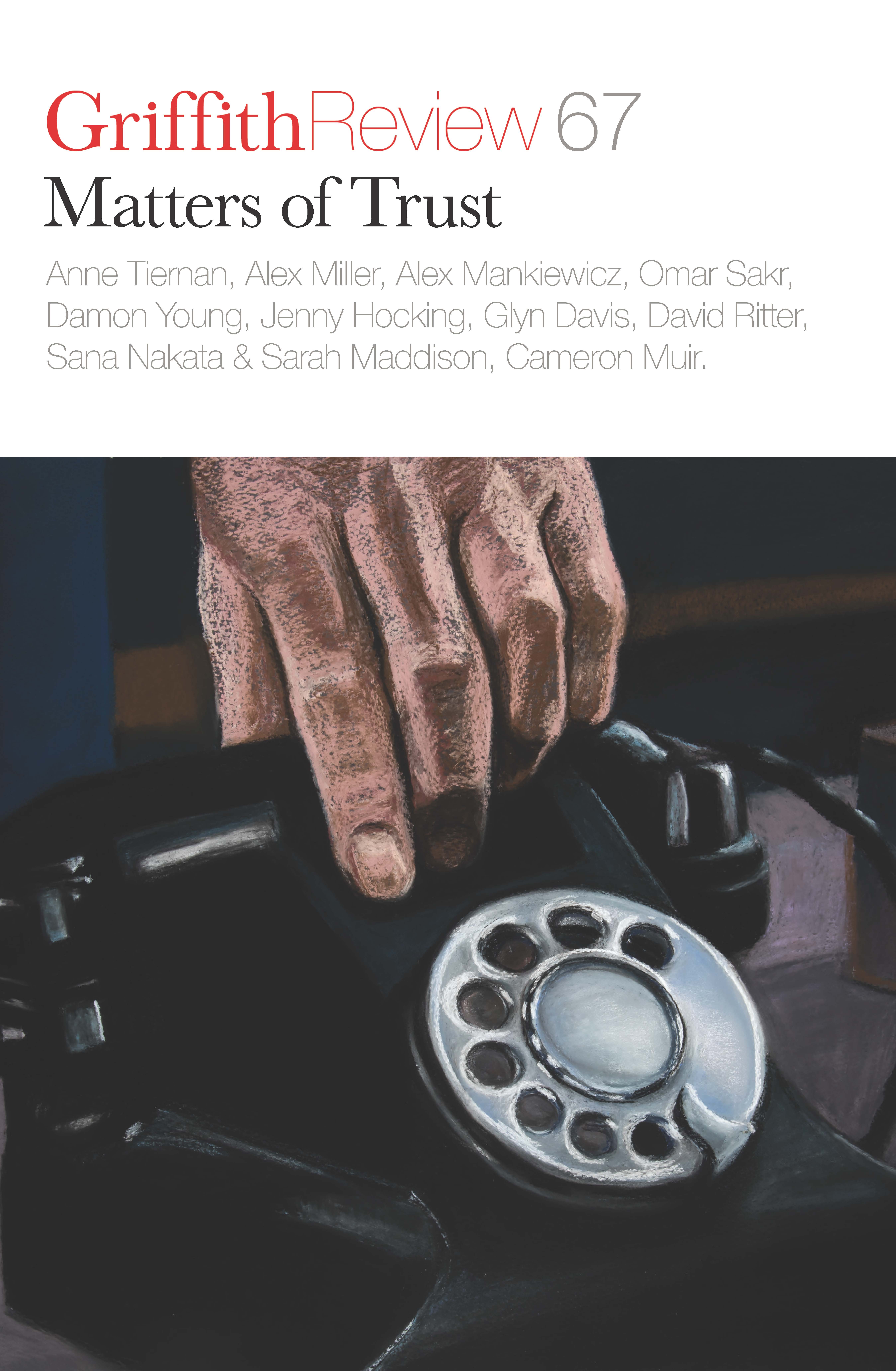Featured in

- Published 20200204
- ISBN: 9781925773804
- Extent: 264pp
- Paperback (234 x 153mm), eBook

Already a subscriber? Sign in here
If you are an educator or student wishing to access content for study purposes please contact us at griffithreview@griffith.edu.au
Share article
More from author

Ripped in half?
Introduction ON THE HIGHWAY before the turnoff to the tranquil village where my small house sits in the heart of Europe – in Vojvodina, an hour...
More from this edition

Science in an age of scepticism
GR OnlineThe risk associated with trust is that a person or institution we trust may fail to behave as we expect or hope. This highlights the difference between trust and reliance: we can rely on inanimate objects, such as our car or phone, but strictly speaking we are not betrayed if they don’t work properly. The same is not true in trust-based relationship...

Foresight, hindsight and the present day
IntroductionClick here to listen to Editor Ashley Hay read her introduction ‘Foresight, hindsight and the present day’. IN 2013, US-based Chinese visual artist Cai Guo-Qiang created the vast...

Democracy and the corruption question
EssayI’M RUNNING ON a beach near Cairns, spending a rare holiday moment trying to regain some of the fitness I’ve lost to far too...